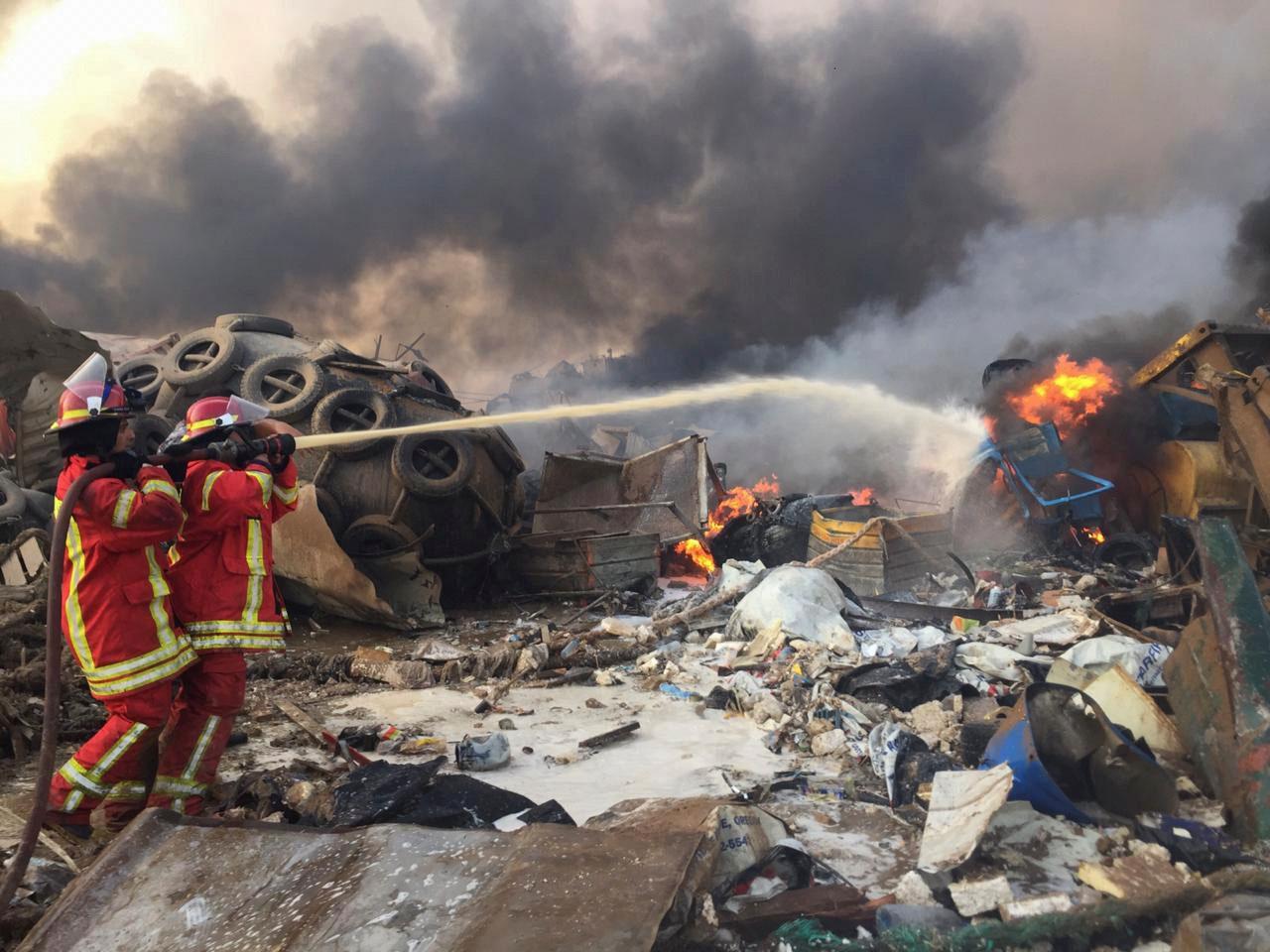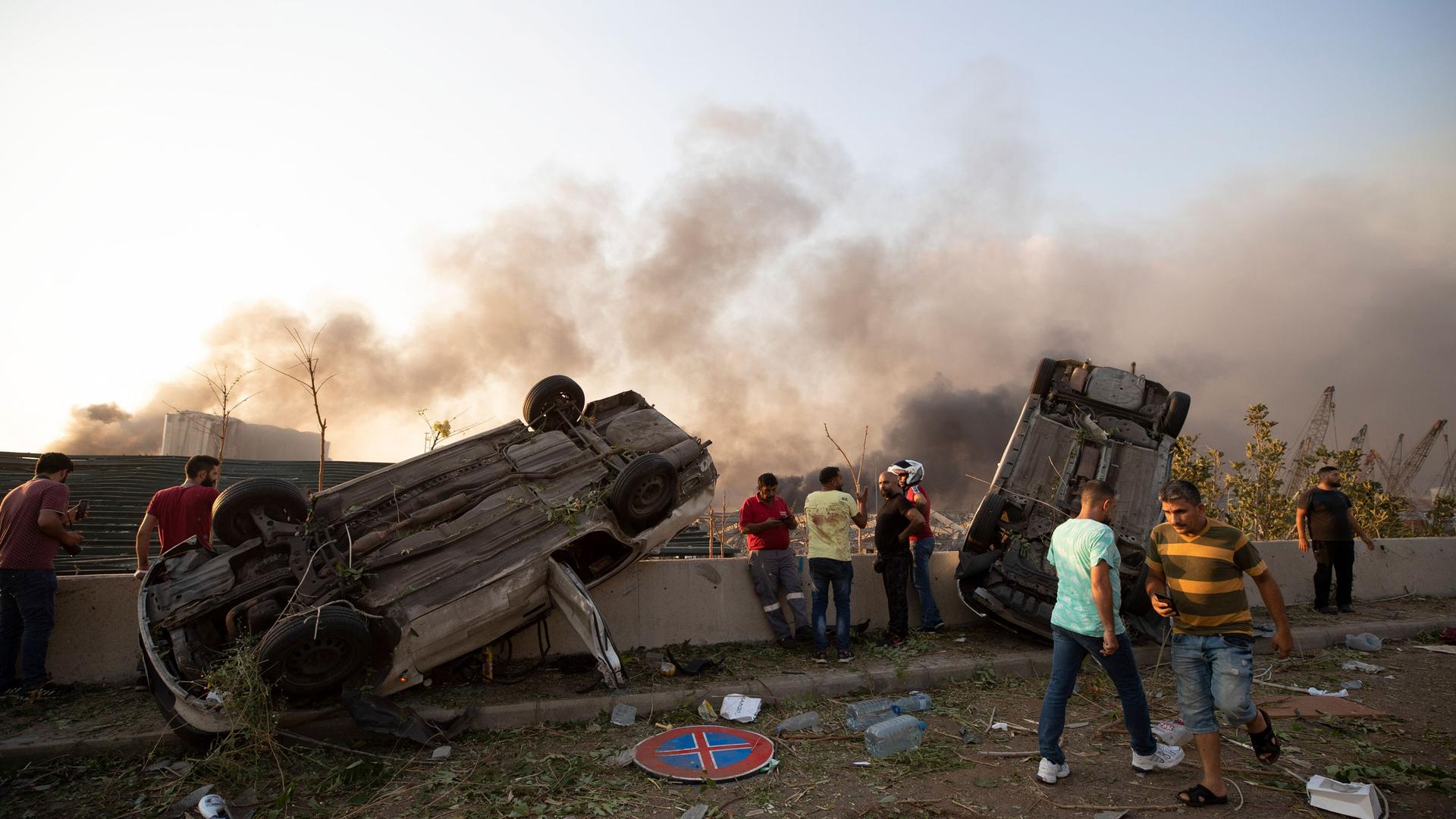Large blast in Beirut port area rocks Lebanon’s capital, many people hurt
The aftermath of a massive explosion is seen in in Beirut, Lebanon, Aug. 4, 2020.
A massive explosion rocked downtown Beirut on Tuesday, flattening much of the port, damaging buildings and blowing out windows and doors as a giant mushroom cloud rose above the capital.
Lebanese Red Cross official Georges Kettaneh said there were dead and wounded, but did not have an exact figure, just saying there were hundreds of casualties.
An Israeli government official says Israel “had nothing to do” with the blast.
Israel and Lebanon’s Hezbollah militant group are bitter enemies, and tensions have been high following a series of recent clashes. Earlier Tuesday, Prime Minister Benjamin Netanyahu warned Hezbollah Israel would not hesitate to strike again if it felt it was necessary.
But late Tuesday, the Israeli official said Israel was not involved in the Beirut explosion. He spoke on condition of anonymity because he was not authorized to discuss the matter with the media.
Lebanese Red Cross official Georges Kettaneh said there were dead and wounded, but did not have an exact figure, just saying there were hundreds of casualties.
A civil defense official on the scene of the blast said his men had evacuated dozens to hospitals and that there were still bodies inside the port, many of them under debris.
The cause of the blast was not immediately known.
It was stunning even for a city that has been shaken by civil war, suicide bombings and bombardment by Israel.
Related: As Lebanon’s financial crisis worsens, migrant workers are being dumped on the streets like ‘trash’
Dozens of ambulances ferried the injured from the port area, where the wounded lay on the ground, Associated Press staff at the scene said. Hospitals called for blood donations.
The head of the Lebanese Red Cross told local TV there were hundreds of casualties although many were superficial wounds from broken glass.
Video taken by residents showed a fire raging at the port, sending up a giant column of smoke, illuminated by flashes of what appear to be fireworks. Local TV stations reported that a fireworks warehouse was involved.

The fire then appeared to catch at a nearby building, triggering a more massive explosion, sending up a mushroom cloud and a shock wave over the city.
“It was like a nuclear explosion,” said Walid Abdo, a 43-year-old school teacher in the neighborhood of Gemayzeh near Beirut.
Charbel Haj, who works at the port, said it started as small explosions like firecrackers, then the huge blast erupted and he was thrown off his feet. His clothes were torn.
Miles from the port, balconies were knocked down, windows shattered, streets were covered with glass and bricks and lined with wrecked cars. Motorcyclists picked their way through traffic, carrying the injured.
One woman covered in blood from the waist up walked down a trashed street while talking furiously on her phone. On another street, a woman with a bloodied face looked distraught, staggering through traffic with two friends at her side.
“This country is cursed,” a young man passing by muttered.
The blast came at a time when Lebanon’s economy is facing collapse, hit both by a financial crisis and coronavirus restrictions. Many have lost jobs, while the worth of their savings has evaporated as the currency has plunged in value against the dollar. The result has thrown many into poverty.
It also comes amid rising tensions between Israel and the militant Hezbollah group along Lebanon’s southern border.
The explosion was reminiscent of massive blasts during Lebanon’s civil war and took place only three days before a UN-backed tribunal was set to give its verdict in the killing of former Prime Minister Rafik Hariri in a truck bombing more than 15 years ago. That explosion, with a ton of explosives, was felt miles away, just like Tuesday’s explosion.
It was the latest chapter for a country that has suffered a 15-year civil war, repeated conflict with Israel, political assassinations and various other crises including the current unprecedented financial and economic crisis.
By Bassem Mroue/AP
